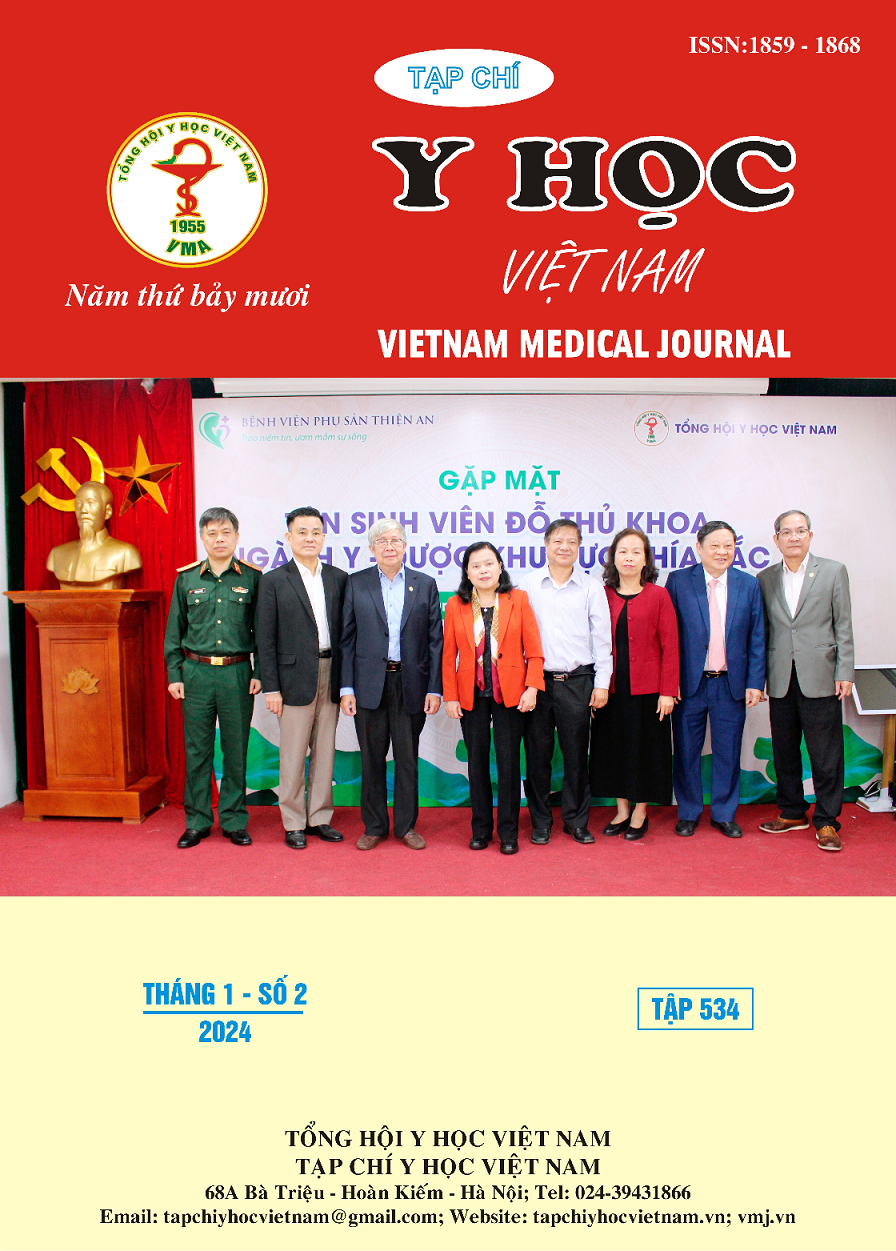SURVEYING CHANGES IN HCV CORE ANTIGEN (HCVcAg) CONCENTRATIONS DURING DAAs TREATMENT IN PEOPLE WITH HEPATITIS C VIRUS
Main Article Content
Abstract
Objective: Observing changes in HCVcAg kinetics during DAAs treatment in patients with hepatitis C virus. Subjects and methods: A cross sectional descriptive study use of convenience sampling method was performed on 36 patients ≥16 years old diagnosed with hepatitis C treated with DAAs and monitored at the Center for Tropical Diseases - Bach Mai Hospital. HCVcAg, HCV RNA and other hematological biochemical tests were evaluated at the following times: before, 4 weeks, 12 weeks of treatment and after 3-6 months upon completion of treatment. Results and conclusions: The level of HCVcAg was 5260.54 ± 4421.98 fmol/L. HCVcAg levels decreased rapidly during DAAs treatment. At 4 weeks, 30/33 cases did not detect HCVcAg, at 12 weeks and after the end of treatment, no case detected HCVcAg.
Article Details
References
2. Guidelines on hepatitis B and C testing. World Health Organization; 2017.
3. Łucejko M, Flisiak R. Quantitative Measurement of HCV Core Antigen for Management of Interferon-Free Therapy in HCV-Infected Patients. Antiviral Therapy. 2018;23(2):149-156. doi:10.3851/imp3190
4. Nhàn LTT, Lợi TV, Duy LTT, Đạt NQ, Hà NM. Giá trị của xét nghiệm HCV core antigen trong sàng lọc vi rút viêm gan C. Tạp chí Y học Việt Nam. 07/31 2022;516(2) doi:10. 51298/vmj. v516i2.3088
5. Quyết định số 5314/QĐ-BYT Quyết định về việc ban hành Hướng dẫn chẩn đoán, điều trị bệnh viêm gan vi rút C (Bộ Y Tế) (2021).
6. Ko P-H, Tseng C-W, Tseng K-C, Chen Y-C, Hsu C-S. The utility of HCV core antigen for evaluation of viremia at 48 weeks posttreatment with direct-acting antivirals. Advances in Digestive Medicine. 2023;10(2): 80-86. doi:https://doi.org/ 10.1002/aid2.13316
7. Khudyakov YE, Ponnuvel S, Prakash A, et al. Longitudinal assessment of HCV core antigen kinetics to monitor therapeutic response in the age of DAAs. PloS one. 2023;18(2):e0282013. doi:10.1371/journal.pone.0282013
8. Nevine I. Musaa ES, Ramy S. Ghaita, Heba Alyb, Dalia H. Abdelhamid. Can hepatitis C virus core antigen replace quantitative RNA in the assessment of a sustained virologic response? The Egyptian Journal of Internal Medicine. 2020;ol. 31 No. 4doi:10.4103/ejim.ejim_88_19
9. Feng B, Yang R-F, Xie Q, et al. Hepatitis C virus core antigen, an earlier and stronger predictor on sustained virological response in patients with genotype 1 HCV infection. BMC Gastroenterology. 2014/03/13 2014;14(1):47. doi:10.1186/1471-230X-14-47
10. Nguyen THT, Guedj J, Uprichard SL, Kohli A, Kottilil S, Perelson AS. The paradox of highly effective sofosbuvir-based combination therapy despite slow viral decline: can we still rely on viral kinetics? Scientific Reports. 2017/08/31 2017;7(1): 10233. doi: 10.1038/ s41598-017-09776-z


